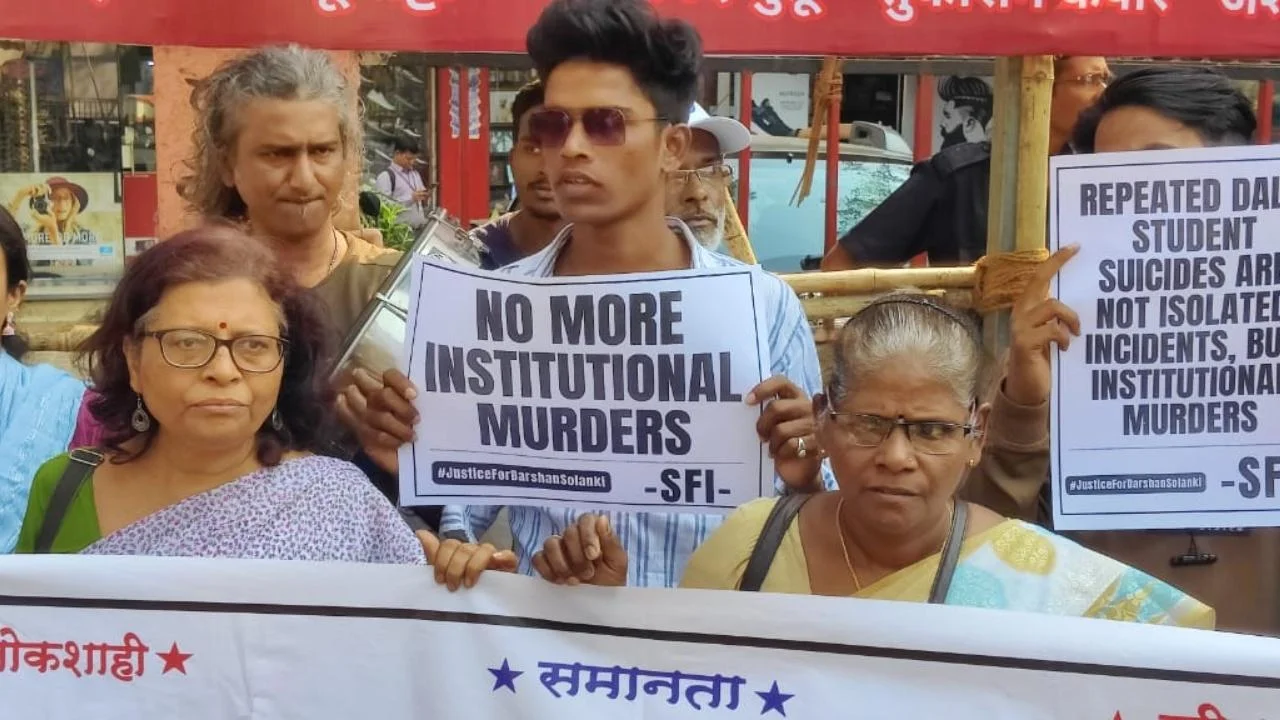Maneka Gandhi may have received flak online for her “hormonal outbursts” comment but her notion is implemented almost in every hostel and not just those for teens. The unquestionable justification is always that such restrictions are for the safety of women, only women.
Also Read: Dear Maneka Gandhi, Thank You For Your Wisdom!
This expression is used to cover all that comes under the coercive compliance to societal norms, and a presumed right to cage women inside homes and hostels.
Kashmir, unlike many parts of India, does not have a vibrant night life. There are no 24/7 restaurants or malls. Public transport disappears by 7 PM in winters and by 8:30-9 PM in summers. By 10 PM, on any given day, most people are back in their abodes. But if you are a woman living in a hostel, expect the wrap-up hours begin a little early.
The hostels of Kashmir University run on different rule books for different genders. The doors of hostels for females are closed by 7 PM in summer and by 6-6:30 PM in winter. For males, there are no locked hostel gates.
Azra, a hosteller from Kashmir University, while interning with a private firm, had to struggle with the closed gates every evening due to her late working hours and inflexible hostel timings. “It used to be a mad rush between hostel and workplace,” says Azra. “This greatly affected my performance at work.” It also meant inability to use the 24/7 section of the library after the closure of hostel gates.
For males, there are no locked hostel gates.
Just a corner away at the boys hostel, her male colleagues could would get in and get out of the hostel at any hour during the night, although not outside the campus beyond 9:30 or 10 PM. These discriminatory rules directly puts one gender at a comparative advantage.
However, no one from the authorities is comfortable enough to provide a clear answer to the questions raised. Prof Neelofar Khan, Coordinator of the Women’s Studies Centre, University of Kashmir, believes that such restrictions are imposed keeping in view the nature of society and for the protection of girls. Many others echo the concern. “If we let the girls out during late hours, it will be their parents who will nag us for letting their daughters be out there,” says Khan.
“Why should a girl have a desire to be out in late hours?” added other professors.
According to Saksham Committee Recommendations, “Concern for the safety of all women, but particularly young women students, should not lead to discriminatory rules for women in the hostels. The attitude to women’s safety in hostels often infantilizes these adult women and does not empower them to learn to strategize about their own safety.”
“Why should a girl have a desire to be out in late hours?”
The University has six hostels of which three are for females where scholars are accommodated along with the postgraduates in a room of four. The remaining three hostels for males include a hostel exclusively for male PhD scholars exclusively.
Female PhD scholars? Well, they can adjust! They are grouped into rooms with post-graduate students and don’t get single-occupancy rooms in hostels. In the minutest of manoeuvres, patriarchs know how to condition women into making these adjustments without seeing their culpability in them.
A new hostel for females, all set to start this year, had previously been made exclusively for female PhD scholars, but now admits students from all courses. It has some rooms exclusively for scholars but none are a single-occupancies. Founded in 1948, the university is yet to have a separate hostel for female scholars. This probably has to do with never valuing the work and effort of female PhD scholars.
In one of his 2015 interviews, the Kashmir University Vice Chancellor, Professor Khursheed Iqbal Andrabi, is heard saying that he intends to make this institution bubbling with activities of all sorts, ”so that hostel boarders also feel at home during nights.”
“It has been decreed that students of the opposite sex can’t sit in the university lawns.”
The change has clearly not been seen and instead, the reverse is happening. In the recent past, a new trend of crackdown on the groups of students has started in the campus wherein the staff of the “Proctoral Office” prohibit the students from opposite genders from sitting in the lawns of the campus.
I have been through such experiences thrice. The first time, I was with two friends of mine who were not the students of the varsity. In my naïveté, I assumed that to be the reason for their slagging. A couple of days later, I came across an op-ed written by a student who had been told, “It has been decreed by the Vice Chancellor that students of the opposite sex can’t sit and chat in the university lawns.”
The next time, I asked for the order. My ID-card was taken away and returned after only constant persistence.
There are no official guidelines that lay down such rules and there are no sign posts outside parks that make entry of students from opposite genders restricted. At least, the janitors have never provided one. So why are they so confident in enforcing these obsolete and irrational convictions?
Idiocy and mediocrity thrive in patriarchal societies and their convictions will remain unquestionable in environment where gender mixing is still seen as criminal and sacrilegious. If the order is not official, it is time for the higher authorities to clarify on the issue and take action against the moral brigades on campus. Their silence is deliberate. Creating dichotomies confuses the students further while they continue to pose to be liberal in seminars before an audience and media.
About the author(s)
A teacher and a learner.




